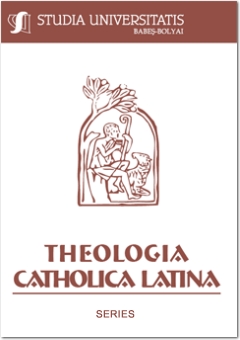THE ROLE OF EXPERIENCING MEANINGFULNESS RELATED TO RELIGIOUS FAITH IN PHYSICAL WELL-BEING
THE ROLE OF EXPERIENCING MEANINGFULNESS RELATED TO RELIGIOUS FAITH IN PHYSICAL WELL-BEING
Author(s): Szende ElekesSubject(s): Christian Theology and Religion
Published by: Studia Universitatis Babes-Bolyai
Keywords: well-being; meaningfulness; logotherapy; religious faith.
Summary/Abstract: The role of psychosocial factors in the maintenance of physical health and evolvement of chronic diseases is a well known phenomenon in the field of health psychology. Some psychosocial factors might play a role in the emergence of diseases, for example stress, negative life events, the experience of loss. Other factors help people preserve their health, like social support or religious faith. Among the least mentioned, we would like to enroll meaningfulness, a concept introduced by the psychiatrist and philosopher Viktor Frankl, that – according to the author – refers to man’s deepest motivation. According to his theory named logotherapy, man is instinctly striving to find and fulfill meaning and purpose in life, and the frustration of this “will to meaning” leads to different mental and physical disorders. Frankl speaks about “psychosomatic health” in spite of psychosomatic disease and states that meaningfulness contains something that he called “survival value”. Starting with these concepts, in the present study we attempt to make a review of the literature concerned with the relationship of experienced meaningfulness/ meaninglessness and physical health, with both its objective and subjective aspects. We would like to take into consideration religious faith as well, more specifically its inner aspect, one’s personal relationship with the Divine, and the way it relates to the experience of meaningfulness and physical well-being.
Journal: Studia Universitatis Babes-Bolyai - Theologia Catholica Latina
- Issue Year: 2011
- Issue No: 1
- Page Range: 81-94
- Page Count: 14
- Language: English

